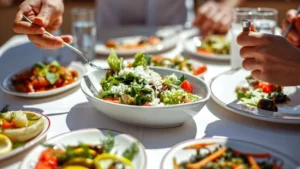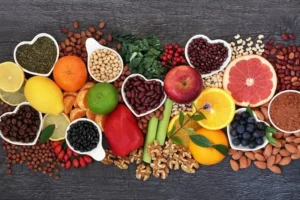Being told by your doctor that your blood sugar is borderline high can be unsettling, especially if you want to avoid taking medication. Borderline high blood sugar, commonly known as prediabetes, means your glucose levels are elevated but not high enough to be considered type 2 diabetes.
Fortunately, there are natural ways to manage and even reverse this condition through lifestyle changes.
Understanding Prediabetes
Prediabetes occurs when fasting blood sugar levels fall between 100 and 125 mg/dL, or when your A1C test, which measures your average blood sugar over a few months, ranges from 5.7% to 6.4%.
These numbers indicate that your body is beginning to struggle with processing sugar effectively. Though it’s a warning sign, it’s not a life sentence—many people successfully bring their levels back to normal through proactive changes.
Eating for Blood Sugar Control

Diet plays a major role in managing blood sugar. A balanced plate should include a mix of non-starchy vegetables, lean proteins, healthy fats, and whole grains.
Half of your plate should be vegetables, with the remaining half split between protein and whole grains. Avoid large meals, and instead eat smaller, balanced portions throughout the day to keep sugar levels stable.
Choosing foods with a low glycemic index (GI)—which are digested slowly—helps prevent rapid sugar spikes. These include items like sweet potatoes, brown rice, and legumes.
Controlling portion sizes and not skipping meals also supports better glucose management.
Increase Fiber Intake
Fiber slows the body’s absorption of sugar, which helps regulate blood sugar levels. Aim for 25–30 grams of fiber daily from whole plant foods like oats, beans, berries, and vegetables.
Soluble fiber—found in foods such as apples, lentils, and carrots—is particularly effective, forming a gel-like substance in the gut that slows digestion and sugar absorption.

Cut Back on Sugar and Refined Carbs
To reduce blood sugar, cut out refined carbohydrates and added sugars.
White bread, pastries, sugary drinks, and candy can cause rapid spikes. Instead, choose whole grains, such as quinoa and whole wheat bread, which are broken down more slowly.
Be mindful of hidden sugars in processed foods like sauces, cereals, and even salad dressings.
Next Page

